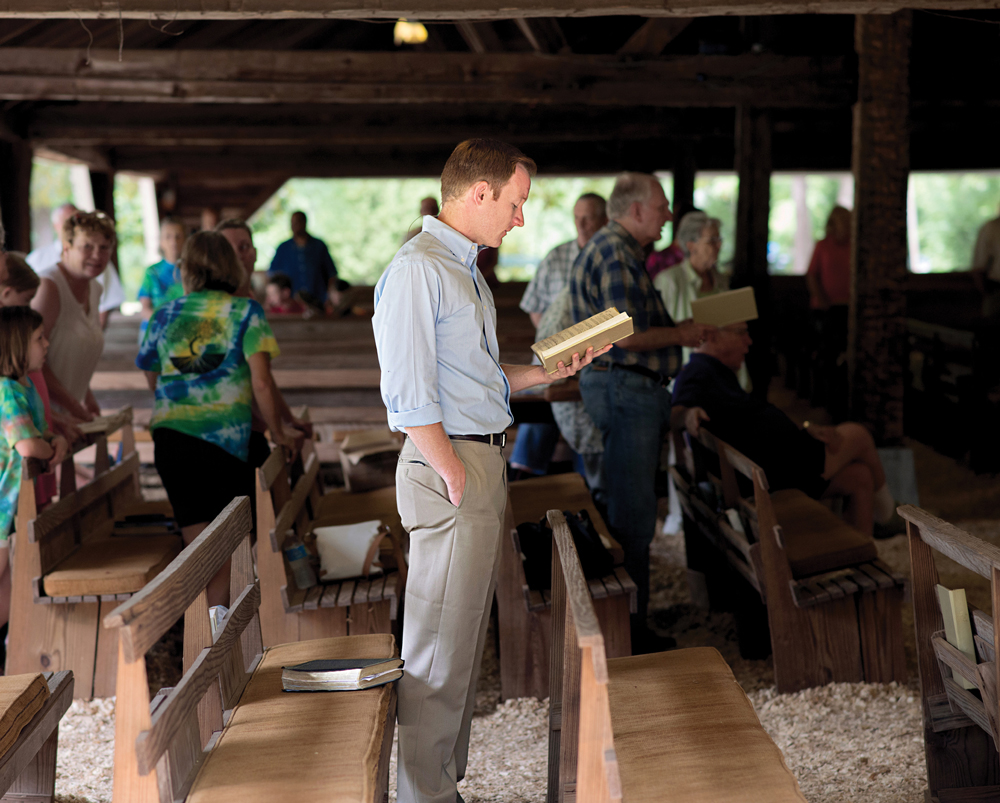
Photograph by Jonathon Kelso
The knock against journalists—well, one of the knocks against journalists—is that they’re cynical. Too focused on what’s wrong, not near enough focused on what’s right. For most of my career, my reaction to the criticism was pretty standard. I’d come up with a nice way to say, basically, Please don’t tell me how to do my job. That, of course, would contribute to another knock against journalists—that they’re arrogant.
In the past few years, my response has become more measured. Maybe it was becoming a parent, maybe it was hitting my 40s, maybe it was recognizing that the traditional definition of journalism needed to change if the profession is to survive. Probably it was a mix of all of the above. What I’ve come to see is that while conflict and tension can be the stuff of good stories, they’re not always essential.
Case in point: Ann Hardie’s feature this month on the Salem campmeetings. A Yankee by birth, I was only glancingly familiar with the Christian revival movement, and completely unaware of the Second Great Awakening of the early 19th century, which spawned hundreds of these meetings down the eastern seaboard and across the Southeast. Most of these revivals went away, as Americans began moving more toward urban areas and built permanent houses of worship. But some campmeetings kept going and still exist today—throwbacks to a simpler time. Salem is one of them.
Ann was a daily newspaper writer for most of her career and, as she explores in the story, a Catholic by birth. The experience she recounts—feeling nostalgic for an experience she’d never had herself as a child—is one I can relate to, as a Catholic myself. The campmeeting, after all, was a distinctly Protestant phenomenon, and was key in establishing what we know today as the Bible Belt. But for all the sociological and anthropological explanations for Salem’s enduring appeal, it’s the personal that resonates most clearly: It comes down to family. In a year when it feels Americans are as divided as ever, the story of Salem is one we all could use about now.
This article originally appeared in our October 2016 issue.










![The North Carolina Museum of Natural Sciences’ newest exhibit is a [pre]historic first](https://cdn2.atlantamagazine.com/wp-content/uploads/sites/4/2024/04/DD-3-100x70.jpg)


